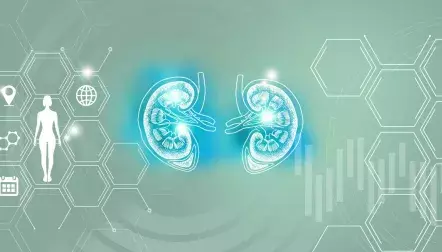
Statins
- Medically reviewed by
- Dr. Kunal Bailoor
- Last updated
- January 12, 2024
What are statins?
Statins are medicines that can help lower a type of cholesterol in your blood, called the low-density lipoprotein (LDL) cholesterol, and also slow down cholesterol building up in blood vessels. Cholesterol is a waxy, fat-like substance in your blood. LDL cholesterol, often called "bad cholesterol," can build up on the walls of your blood vessels, causing them to become narrower. This makes it harder for your blood to flow.
Statins are used for people who:
- Have high cholesterol
- Had a heart attack or stroke
- Have a higher chance of heart disease (for example, those with chronic kidney disease)
Examples of statins include:
- Atorvastatin
- Fluvastatin
- Lovastatin
- Pitavastatin
- Pravastatin
- Rosuvastatin
- Simvastatin
How do statins slow down the damage to my kidneys?
Cholesterol can build up in the blood vessels in your kidneys. If there is too much build up, it can make it hard for blood to flow through your kidneys. This makes it hard for your kidneys to work well.
Statins can help slow down the damage to your kidneys by lowering the amount of LDL cholesterol in your blood. They can also help lower cholesterol build up in your blood vessels, allowing your kidneys to work better. Statins can help prevent heart attacks even in people with normal levels of bad cholesterol.
How do statins work?
Here is how statins work:
- Statins block a protein called HMG-CoA reductase. This protein helps the body make LDL cholesterol.
- With less of this protein, your liver makes less LDL cholesterol.
- Your liver still needs cholesterol to make bile (a fluid that helps digest food). Because your liver now makes less cholesterol, it takes cholesterol that is already in your blood to use. This is another way statins help lower the amount of LDL cholesterol in your blood.
- Statins can also keep blood vessels healthy separately from its effects on cholesterol
What are some common side effects of statins?
Some common side effects of statins include:
- Headaches
- Feeling sick to your stomach
- Muscle and joint aches
It is important to talk to your healthcare provider about medication and medication management questions you have.

